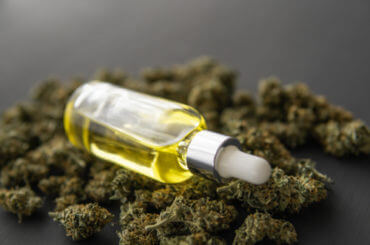
The cannabinoid CBD derived primarily from the hemp plant is useful in treating the symptoms of many ailments. This is due to its potential therapeutic effects like reducing pain, inflammation, healing minor wounds, lowering high blood pressure, and so on. Apart from these therapeutic effects, a study conducted in 2017 has shown that cannabidiol has potential neuroprotective effects, and this can be useful for reducing brain damage due to health issues like stroke and high blood pressure. In this article, we will discuss in detail the use of CBD for stroke; read on to know more about this.
Why Are People Using CBD For Stroke?
In 2010, a review about the therapeutic potential of CBD on ischemic strokes was published in a reputed medical journal. It discussed the mechanism on how cannabidiol produced its neuroprotective effects. Besides, it hypothesized that the cannabinoid achieved this by positively influencing the endocannabinoid system (ECS) along with other receptors in the body.
Apart from CBD’s neuroprotective effect, its anti-inflammatory and antioxidant effects may also help with reducing brain tissue damage after an ischemic stroke. This could result in fewer cognitive and physiological disabilities, which are common after a brain attack. Also, this may lead to improved functional recovery; but this is not conclusive. Finally, researchers opine that the vasodilatory effect of cannabidiol (CBD) may protect against cerebrovascular damage after a stroke.
How Does CBD Oil Help With Stroke Recovery?
Of all the cannabidiol (CBD) products, CBD oil is more commonly used for medical applications. This is mainly because of the ease with which it can be administered and the flexibility in its dosage per serving. When you administer it, the cannabidiol positively influences the receptors of the ECS. The ECS regulates homeostasis, i.e., the internal equilibrium of the body through a network of chemical messengers.
According to researchers, the neuroprotective effect can be due to the CB1 receptors of the ECS. They are mainly found in the central and peripheral nervous stems. Apart from them, CBD may also activate the 5-HT1A receptor, which is a type of serotonin receptor. This could lead to functional improvement after an ischemic stroke.
What Are The Concerns About Using CBD Oil For Stroke?
The major concern about using CBD oil for stroke is the lack of studies about the effectiveness of this cannabinoid in treating patients after stroke. Also, most of the existing studies are about the neuroprotective effect of CBD in animals like rats. Above all, there is the risk of possible side-effects like diarrhea, change in appetite, drowsiness, and tiredness.
More studies are conducted about CBD for stroke to better understand its therapeutic effects so that it can be used as part of conventional ischemic stroke treatment.


